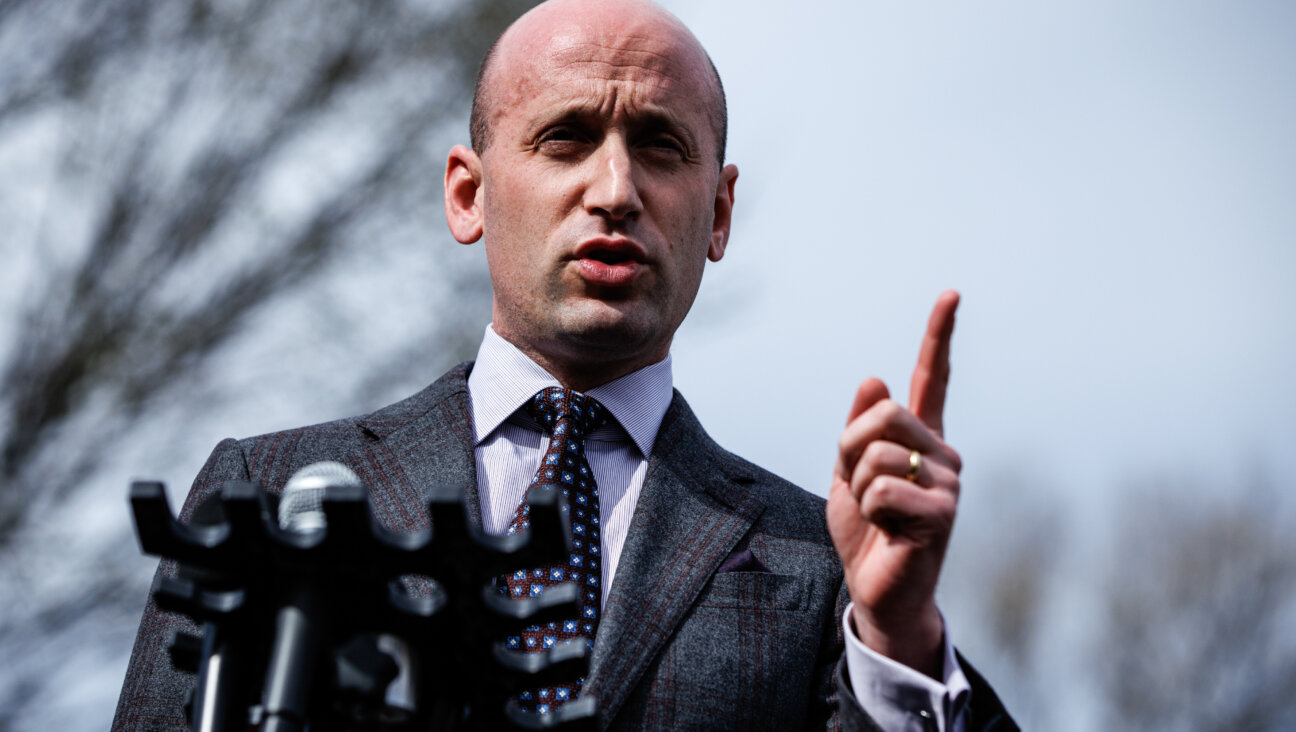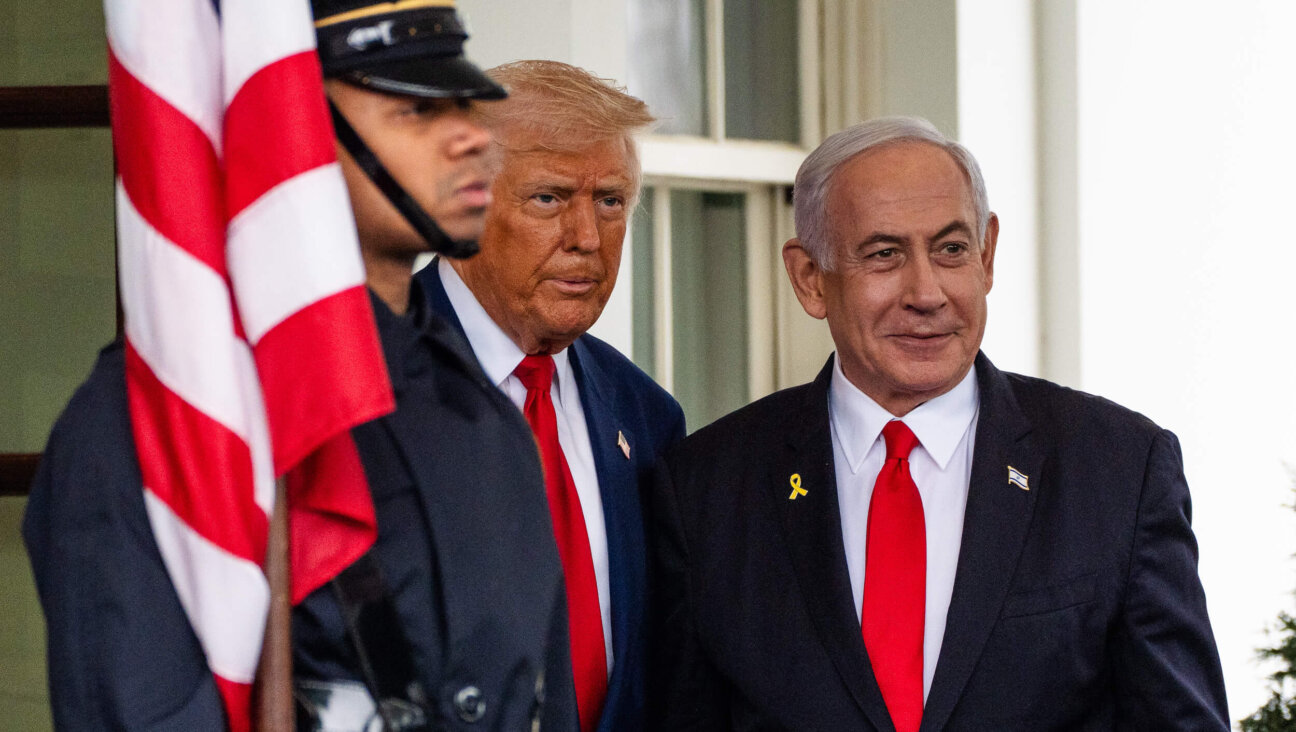The Accountability Moment
The beginning of a president’s second term is a complicated moment, both for the president and for the nation. It is at once a reaffirmation, a chance for the president to continue and finish what he has started, and a pause, a time for the nation and its leader to rethink and start anew.
As President Bush enters his second term, there is every sign that Americans are ready for such a re-evaluation. Support for the war in Iraq, the centerpiece action of his first term, has dropped from a 47% to 44% plurality in favor just before the November election to a damning majority of 58% to 40% against it right now, according to the latest Washington Post-ABC survey. By much the same margin, 58% to 39%, the public disapproves of the way the president is handling the federal deficit. Bush returns to office with a 52% overall approval rating, the lowest of any re-elected president since Richard Nixon. The public wants the president to succeed, but it is deeply uneasy with his policies.
It’s not only the public that’s worried. Bush’s own intelligence community views the new Iraq we have created as a training ground in the making for the next generation of international terrorists, according to the latest assessment of the CIA-linked National Intelligence Council, reported by Marc Perelman on Page 1. More than three years after the September 11 attacks, the administration has failed to penetrate or break up the network of Islamic terrorists who leveled the World Trade Center and are now pouring into Iraq. It has failed to locate Osama bin Laden (“because he’s hiding,” as the president explained unhelpfully to the Washington Post last week).
What’s worse, the terrorist danger is evolving and metastasizing into futuristic new threats. A separate part of the intelligence report, reported by Ori Nir on Page 1, describes the growing danger of biological weapons falling into the hands of terrorists, and the alarming failure of the nation’s leadership to get ahead of the problem. And the home front is woefully unprepared to cope with the aftermath of a biological attack, if and when it comes. Our homeland security network is still chaotic, public-health programs are years behind the curve in technology and coordination, and our overall health care system remains the same fragmented mess it was when Bill Clinton tried to tackle it a decade ago. The indications are that our state of readiness will get worse in the years ahead, not better, as states cut back on Medicaid and other health spending to cope with spiraling cuts in federal support.
To all this, the president’s response seems to be a simple one: I was elected. Get used to it. “We had our accountability moment, and that’s called the 2004 elections,” he told the Washington Post.
The president’s allies like to justify his boldness by pointing out that he won re-election last fall by a 3 million-vote margin, becoming the first president since 1988 to win an absolute majority of the popular vote (a point that inadvertently highlights his lack of a popular mandate for the rash policies of his first term). They also like to note that he won the largest number of votes of any candidate for president in history, overlooking the fact that the second-largest number of votes in history went to John Kerry.
If Bush fails to seize the opportunity he’s been handed to step back and reconsider, he’ll be in good company. Presidents often take re-election as a mandate to plunge into ill-considered schemes that end up damaging the nation and staining their own legacies. Lyndon Johnson, re-elected by a landslide in 1964, took the nation into a deepening quagmire in Vietnam that destroyed his presidency and left us permanently divided. Nixon, after a similar landslide re-election in 1972, destroyed himself in the Watergate scandal and cover-up. Even Ronald Reagan, for all the glow surrounding his memory, spent much of his second term mired in the Iran-contra scandal, escaping personal censure only by letting himself be portrayed as doddering and out of the loop. Only Clinton tried, after winning re-election by a mere plurality in a three-way race, to tack toward the center, though his reward was not harmony but an endless, debilitating probe of his personal affairs.
Bush could be the one to change the rules and escape the fates of his two-term predecessors. After all, he had his scandals in his first term, and he slipped past every one of them unscathed. He inherited a budget in surplus and turned it into an unprecedented ocean of red ink through a series of reckless tax cuts. He took the nation into a calamitous war based on a series of arguments — Iraq’s weapons of mass destruction, the link between Iraq and the September 11 attackers — that turned out to be pure fabrications.
In one area alone he has a record of astounding success: eluding accountability. He managed to have the damning report of the Iraq weapons inspectors characterized as “tentative” until after the November election, leaving voters free to believe there might be some trace of truth in what he’d said. As for the presumed Iraqi connection to the September 11 attacks, the casus belli that launched us on the path to war in the first place, Bush himself long ago dropped that spurious claim — though it has not stopped him from declaring in speech after speech that we went to war in Iraq because “our enemies attacked us.”
Congress, under pressure to explore the disastrous results of Bush’s decisions, has launched a half-dozen investigations into various fiascoes, but every one of them has been stacked to report back after the election, ignore the president’s role or both.
And that, in the end, is the real difference between Bush and his predecessors. Unlike them, he faces none of the normal constitutional checks and balances, because he has nullified and overridden them with the help of a compliant Congress and a generation of Republican-chosen judges.
Bush’s admirers talk of a president who is intent on using his remaining time in office to remake the country and leave a mark on history. To the rest of us, that looks a lot like a man who has no intention of learning from his mistakes.
Americans won’t be safe from Bush’s miscalculations until Congress begins to do its job and hold the administration’s feet to the fire. If the members of the current Congress can find the guts to do it, now is the time. If not, they should be taught a lesson in 2006.
The Forward is free to read, but it isn’t free to produce

I hope you appreciated this article. Before you go, I’d like to ask you to please support the Forward.
At a time when other newsrooms are closing or cutting back, the Forward has removed its paywall and invested additional resources to report on the ground from Israel and around the U.S. on the impact of the war, rising antisemitism and polarized discourse.
Readers like you make it all possible. We’ve started our Passover Fundraising Drive, and we need 1,800 readers like you to step up to support the Forward by April 21. Members of the Forward board are even matching the first 1,000 gifts, up to $70,000.
This is a great time to support independent Jewish journalism, because every dollar goes twice as far.
— Rachel Fishman Feddersen, Publisher and CEO
2X match on all Passover gifts!
Most Popular
- 1
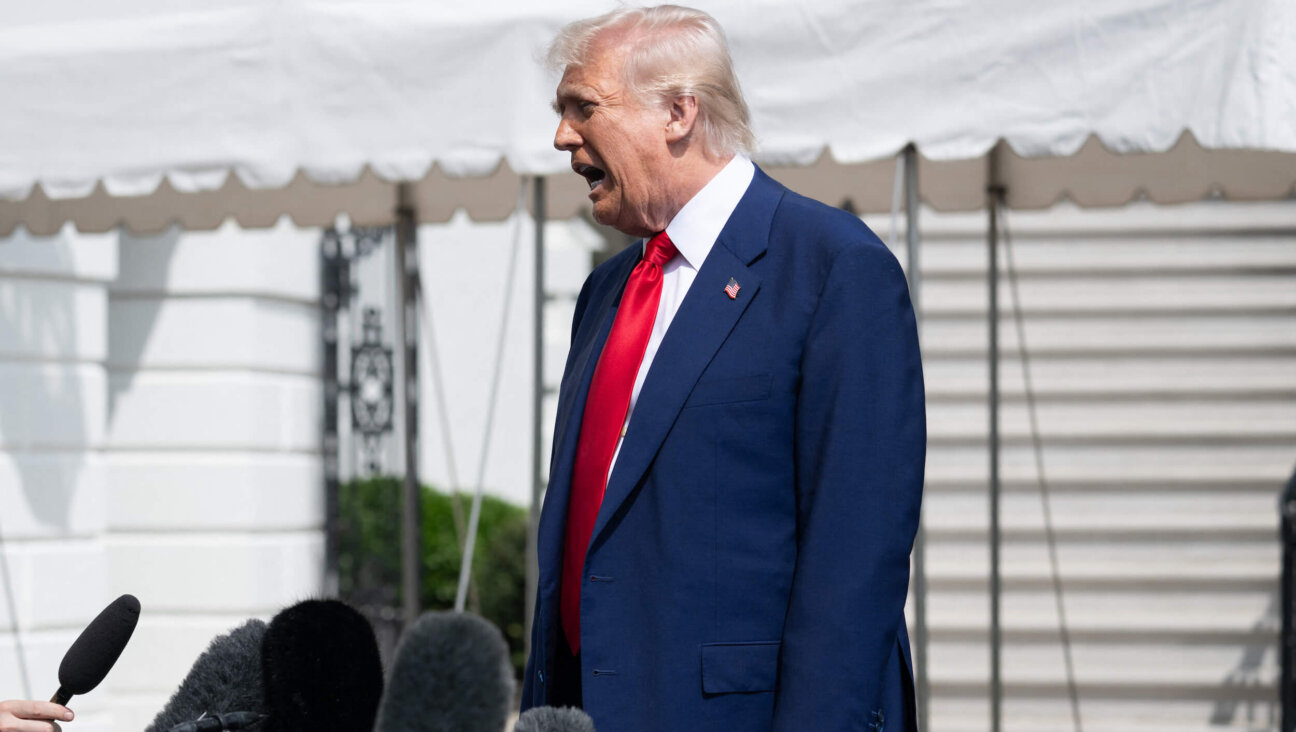
Opinion Trump’s Israel tariffs are a BDS dream come true — can Netanyahu make him rethink them?
- 2

Opinion My Jewish moms group ousted me because I work for J Street. Is this what communal life has come to?
- 3
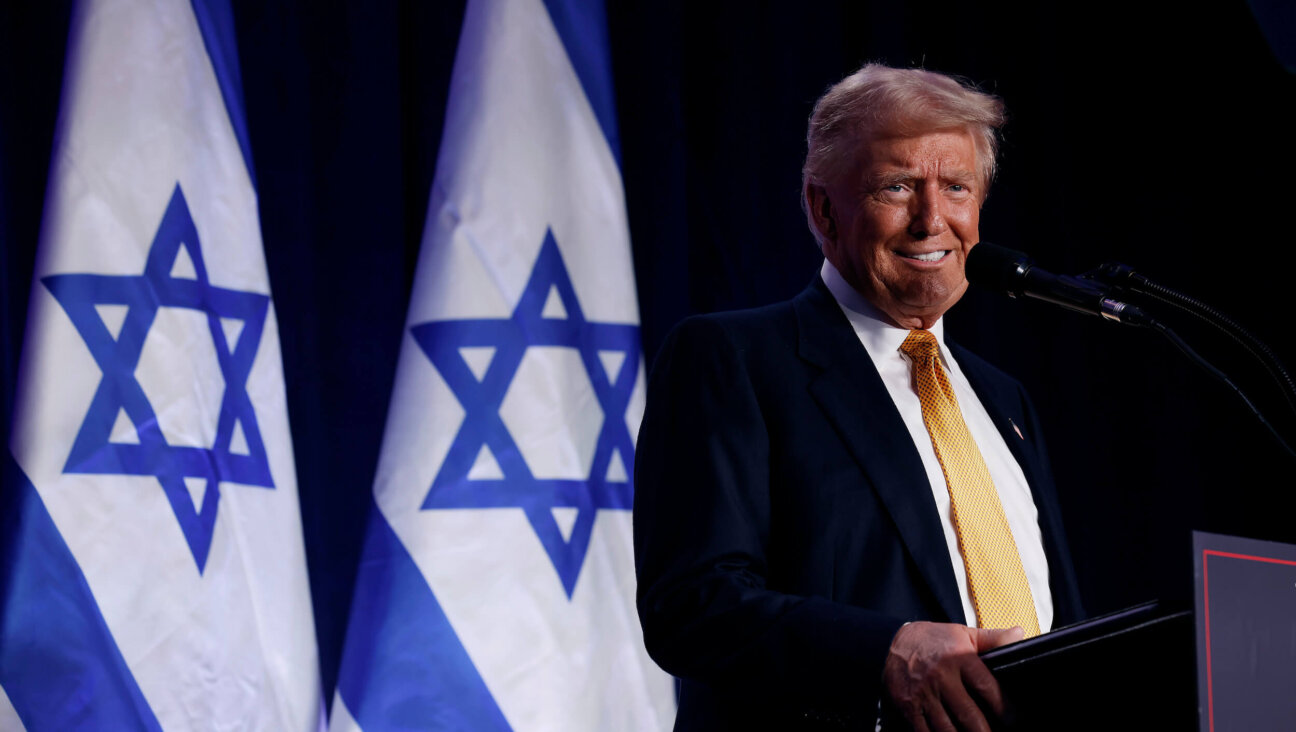
Opinion I co-wrote Biden’s antisemitism strategy. Trump is making the threat worse
- 4

Film & TV How Marlene Dietrich saved me — or maybe my twin sister — and helped inspire me to become a lifelong activist
In Case You Missed It
-
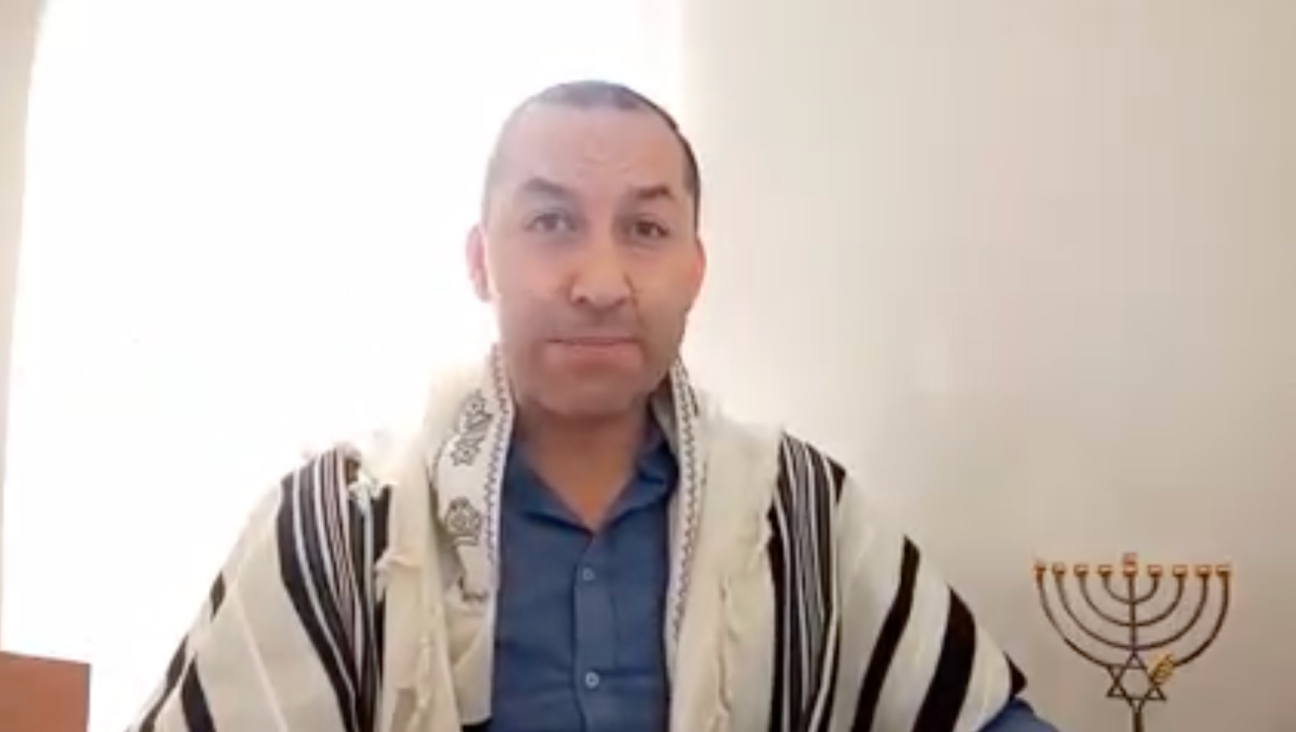
Fast Forward Colombia appoints allegedly fake anti-Zionist rabbi as director of religious affairs
-
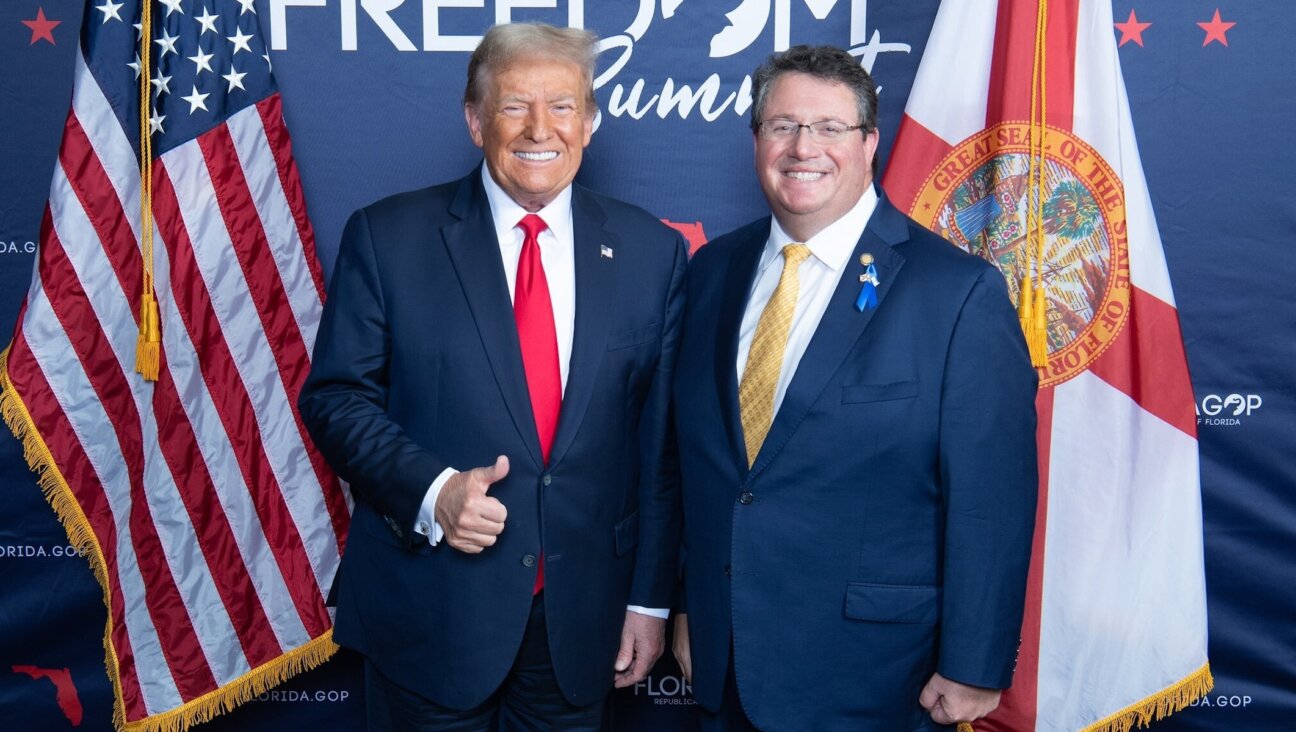
Fast Forward GOP Rep. Randy Fine, the newest Jewish congressman, calls Rashida Tlaib a ‘terrorist’
-
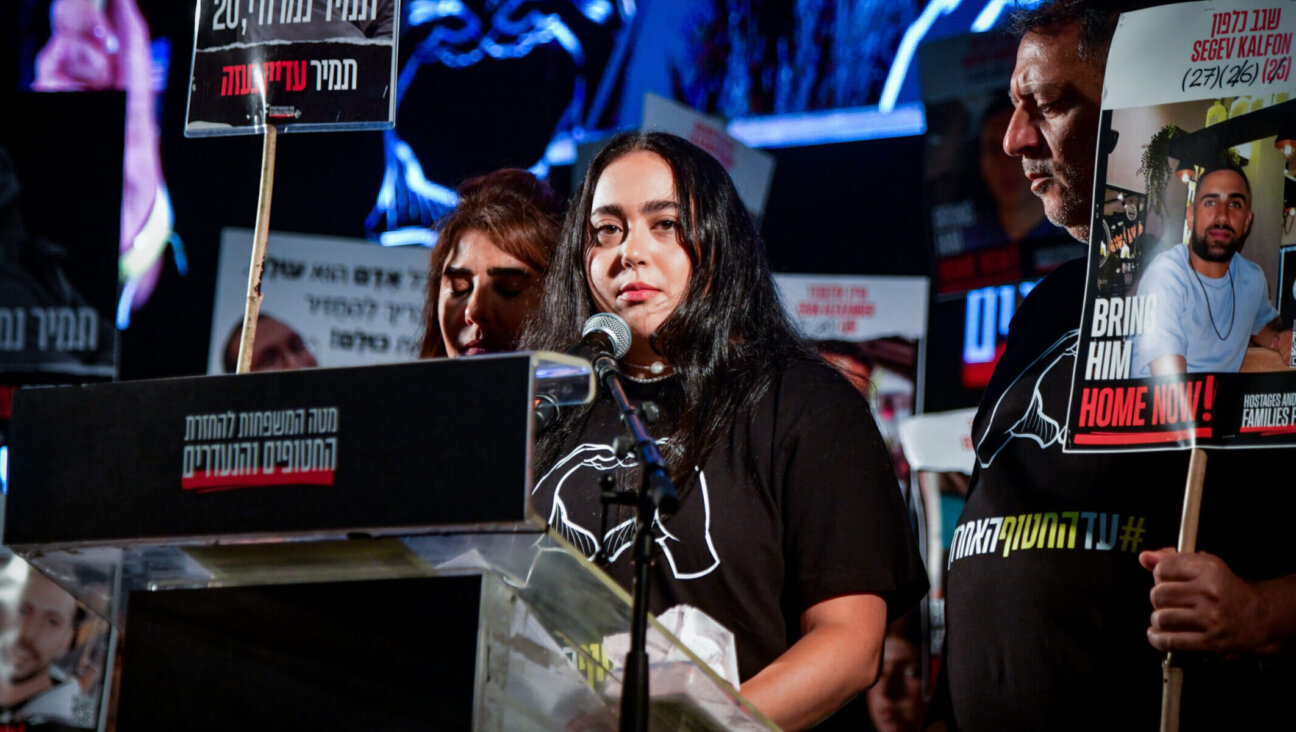
Fast Forward Freed hostage Liri Albag responds to backlash over Netanyahu criticism: ‘I fear what we have become’
-
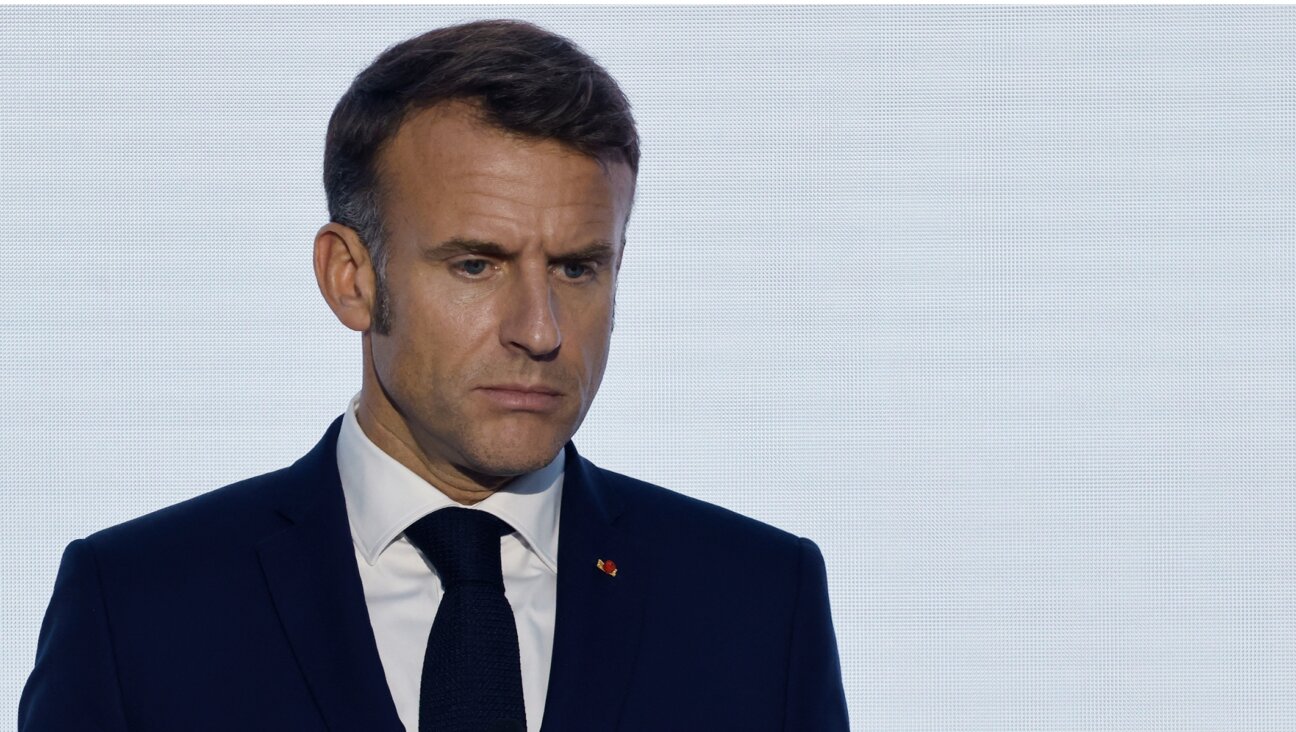
Fast Forward France will move to recognize a Palestinian state this year, Macron says
-
Shop the Forward Store
100% of profits support our journalism
Republish This Story
Please read before republishing
We’re happy to make this story available to republish for free, unless it originated with JTA, Haaretz or another publication (as indicated on the article) and as long as you follow our guidelines.
You must comply with the following:
- Credit the Forward
- Retain our pixel
- Preserve our canonical link in Google search
- Add a noindex tag in Google search
See our full guidelines for more information, and this guide for detail about canonical URLs.
To republish, copy the HTML by clicking on the yellow button to the right; it includes our tracking pixel, all paragraph styles and hyperlinks, the author byline and credit to the Forward. It does not include images; to avoid copyright violations, you must add them manually, following our guidelines. Please email us at [email protected], subject line “republish,” with any questions or to let us know what stories you’re picking up.








